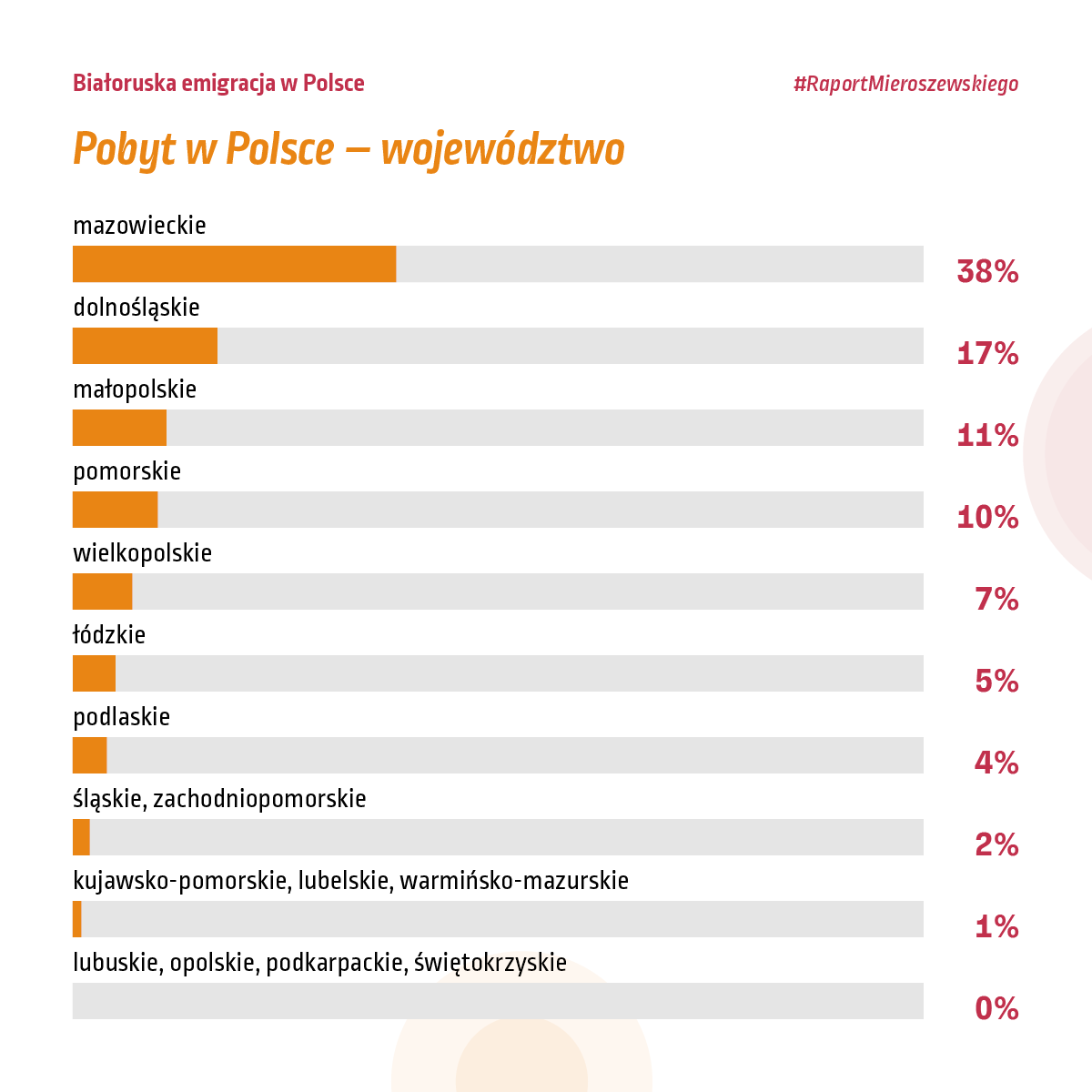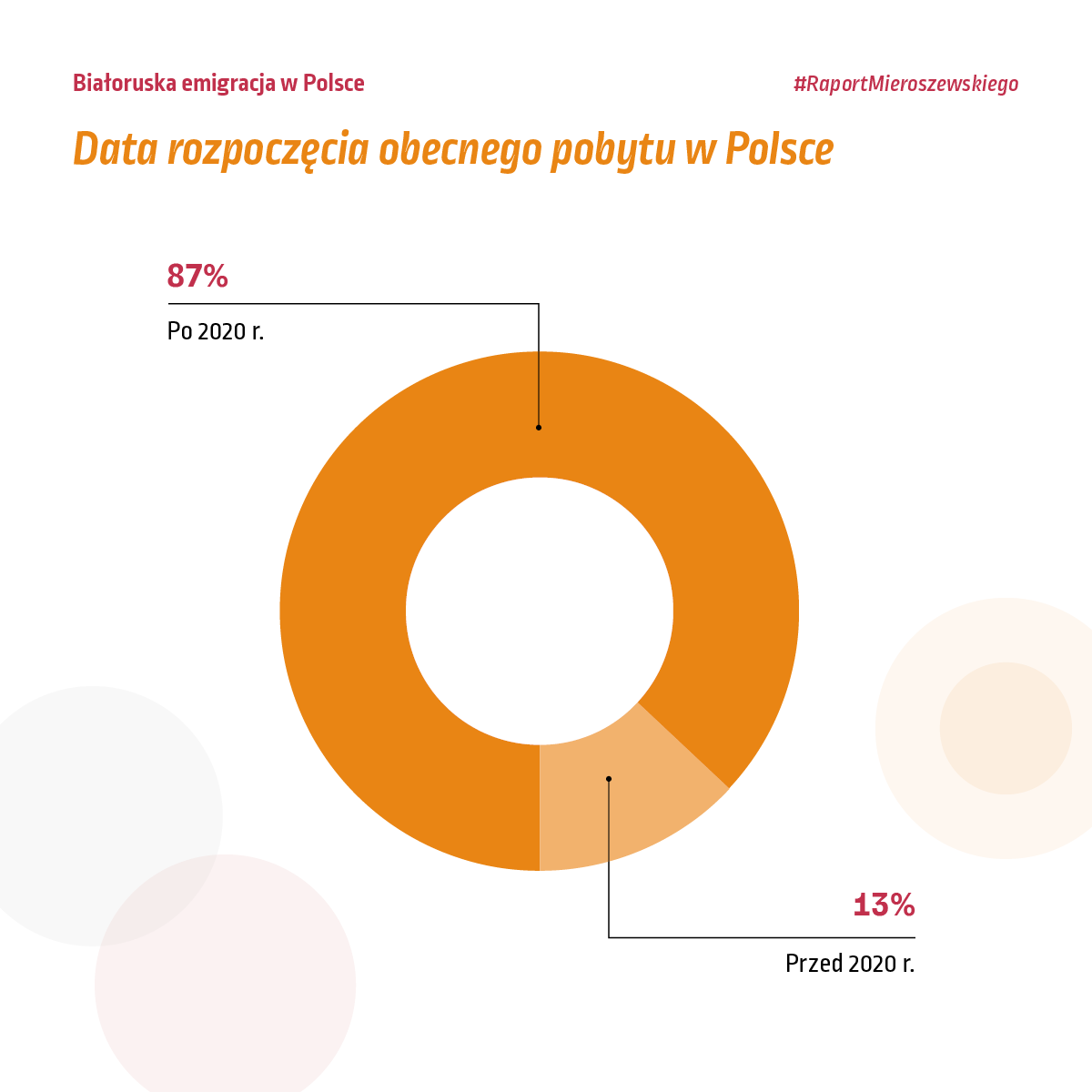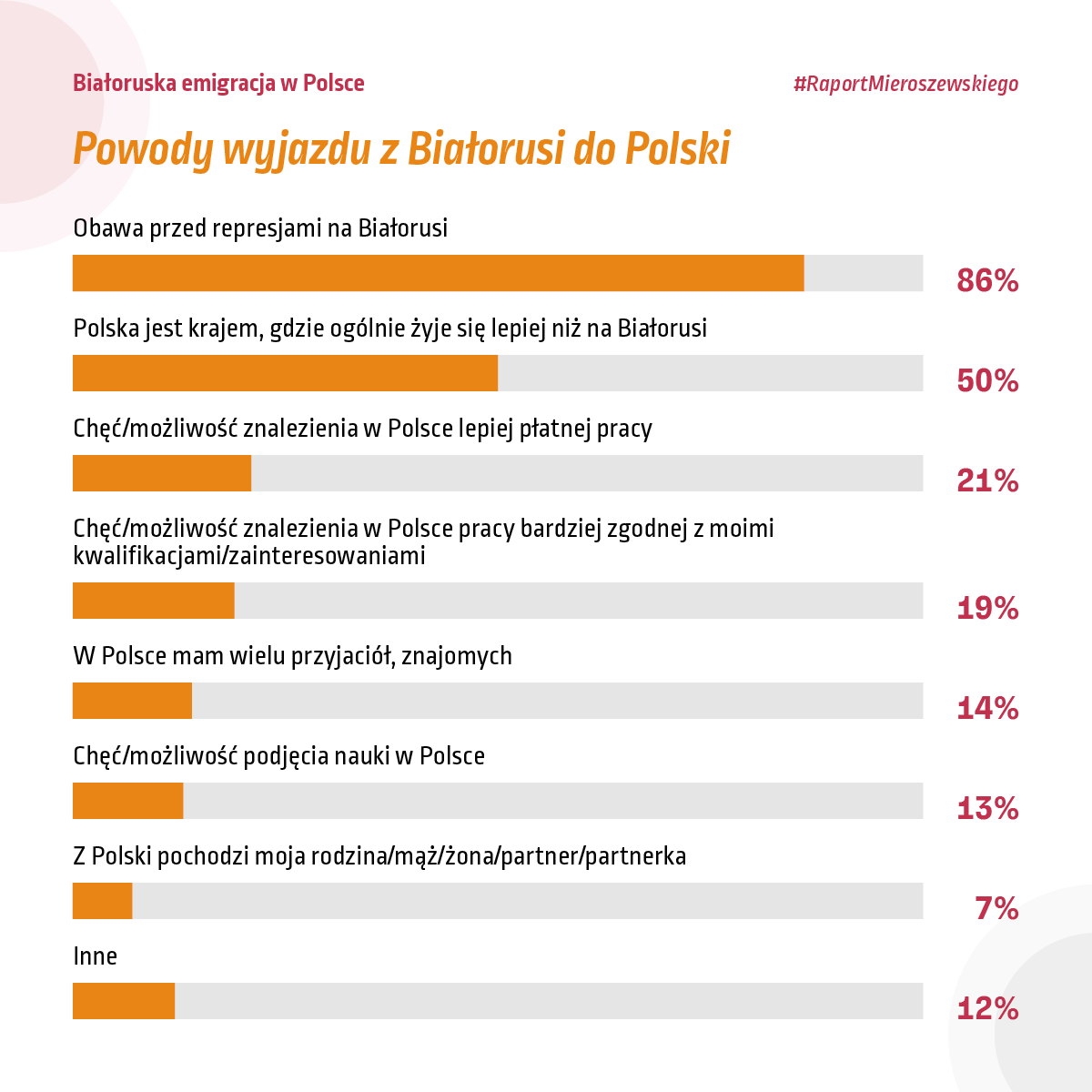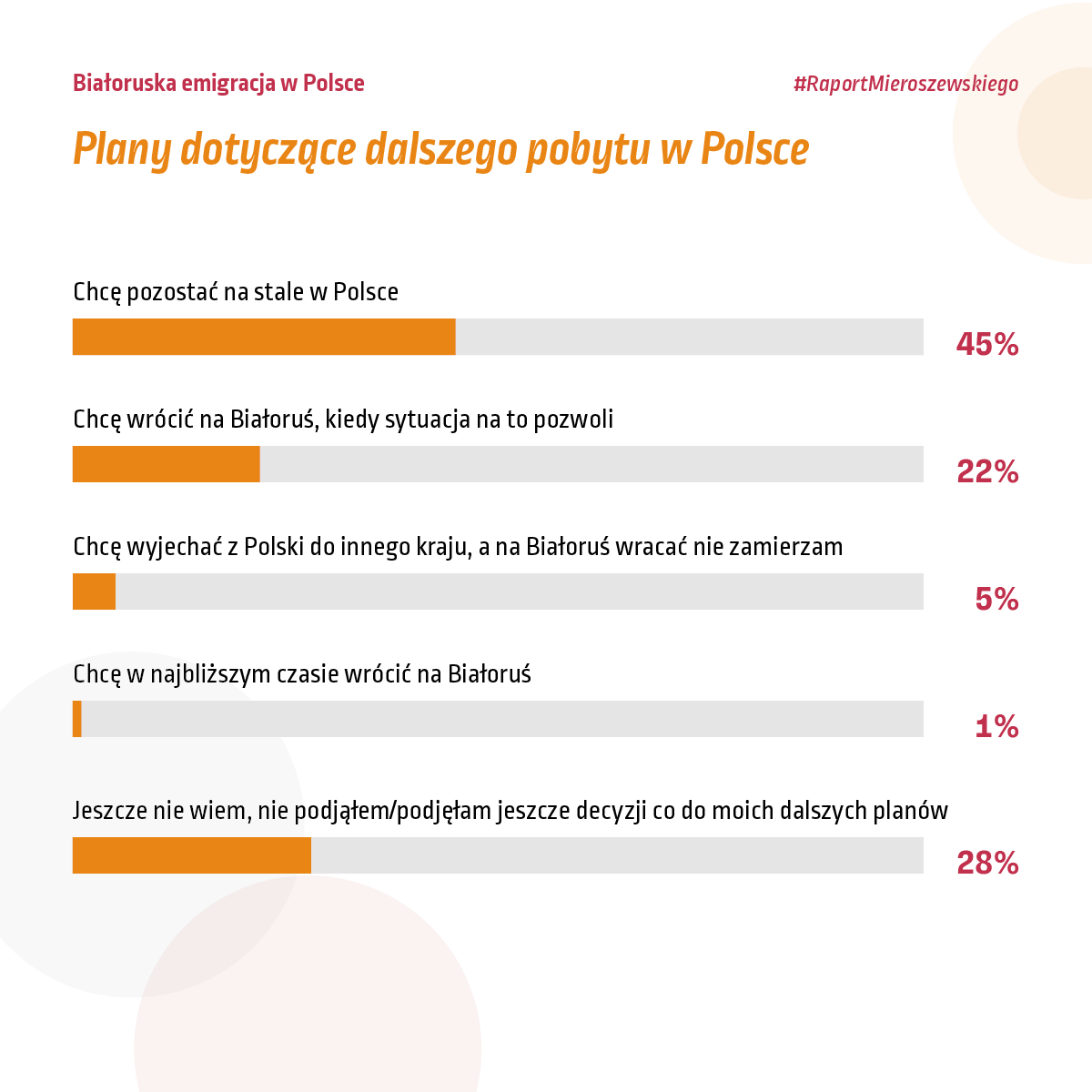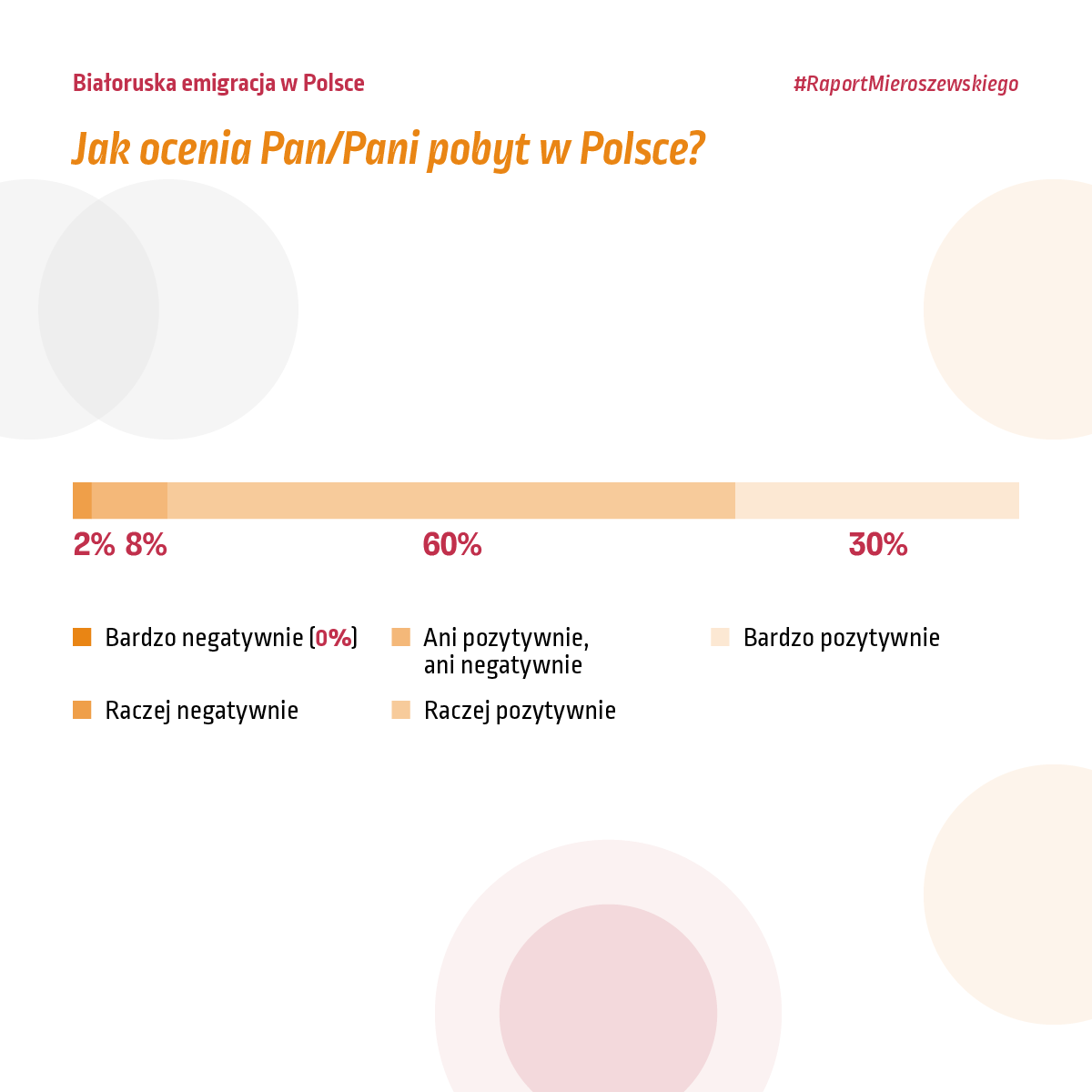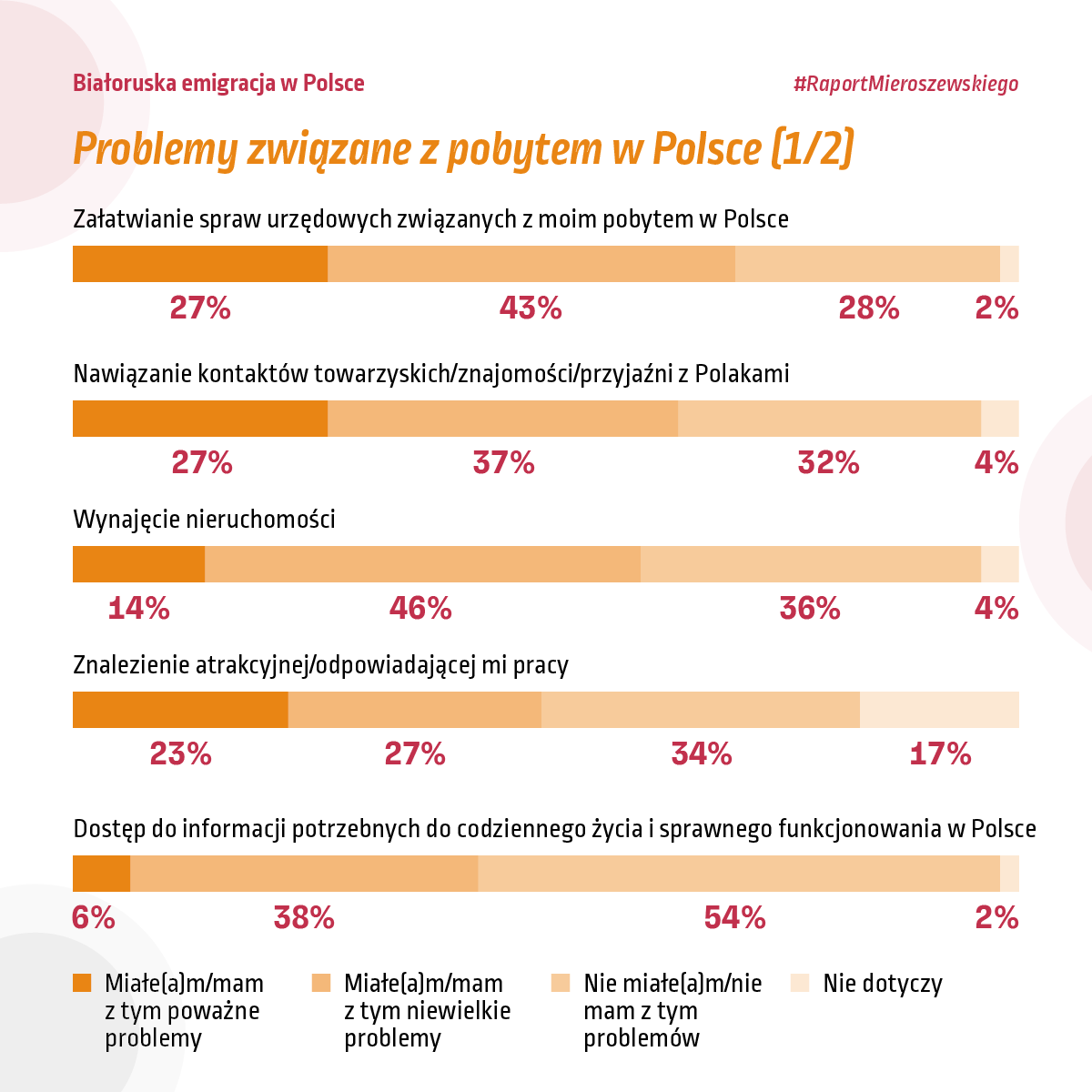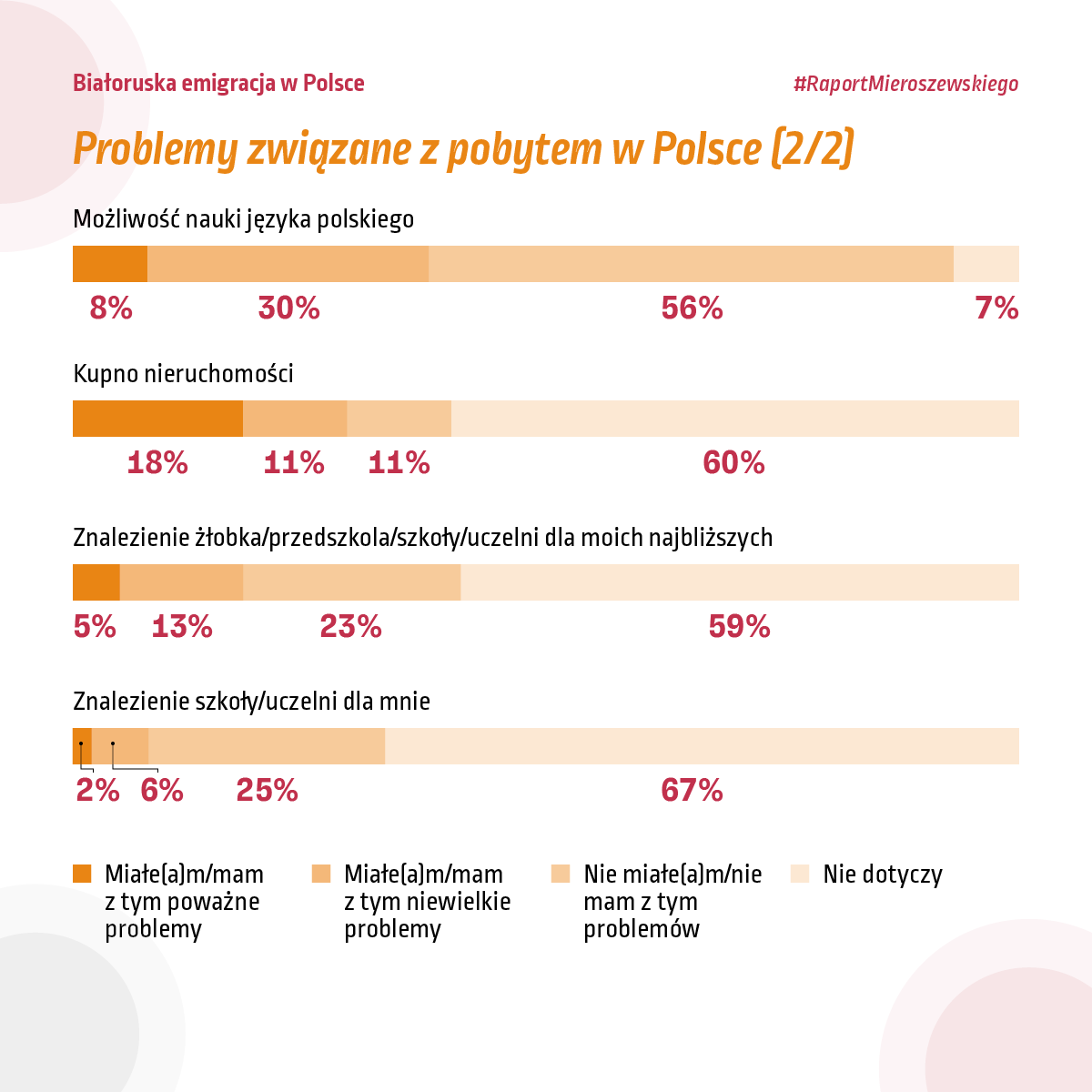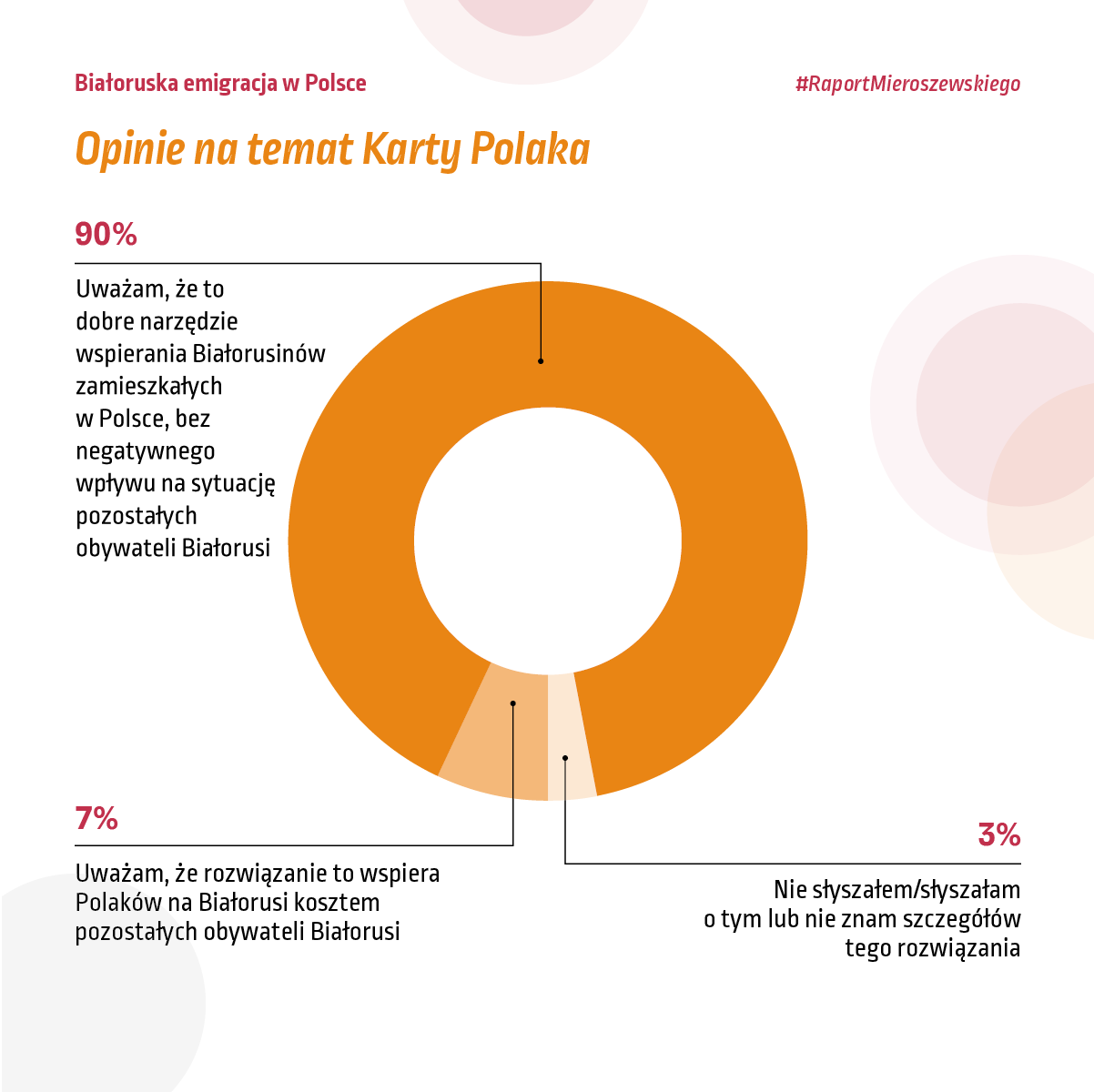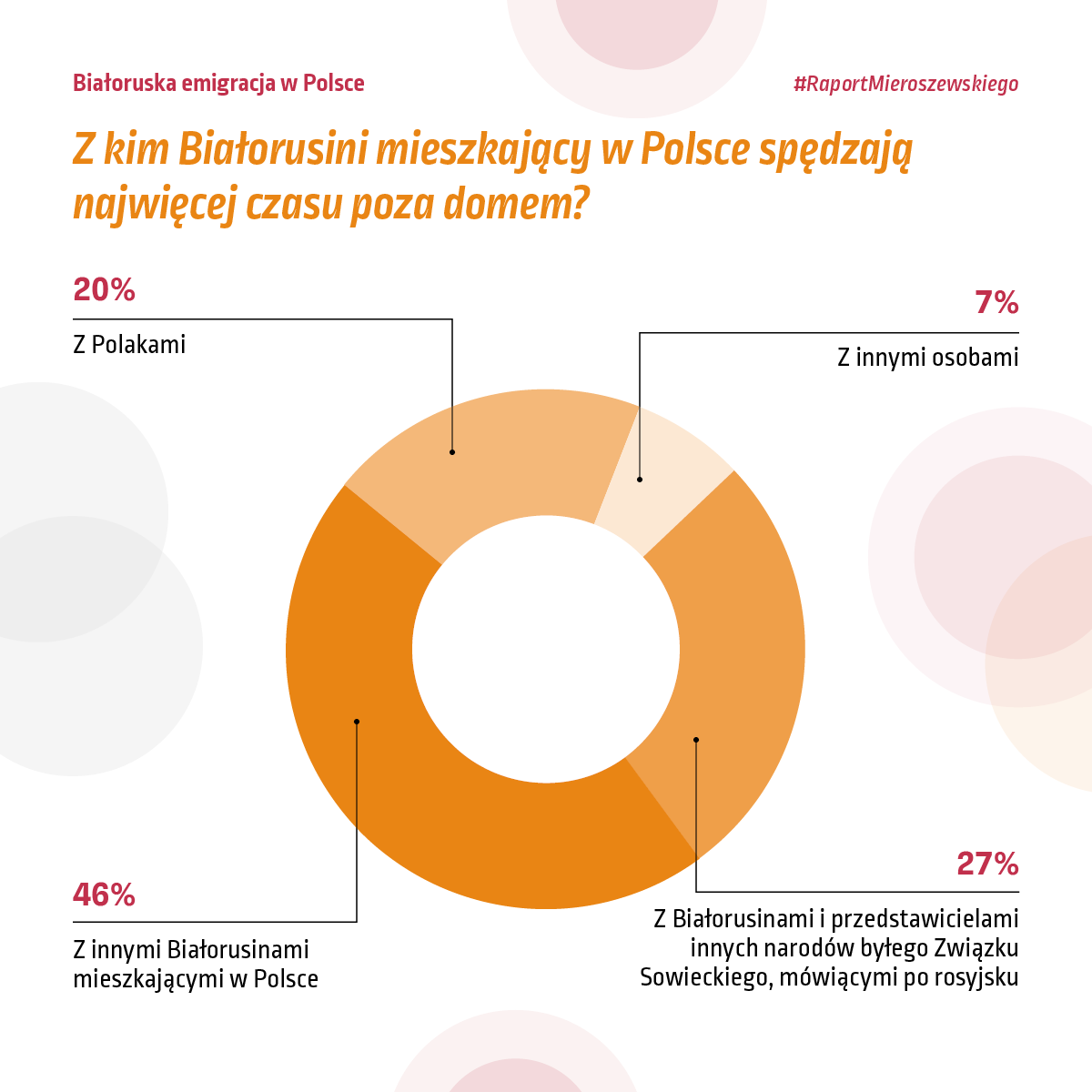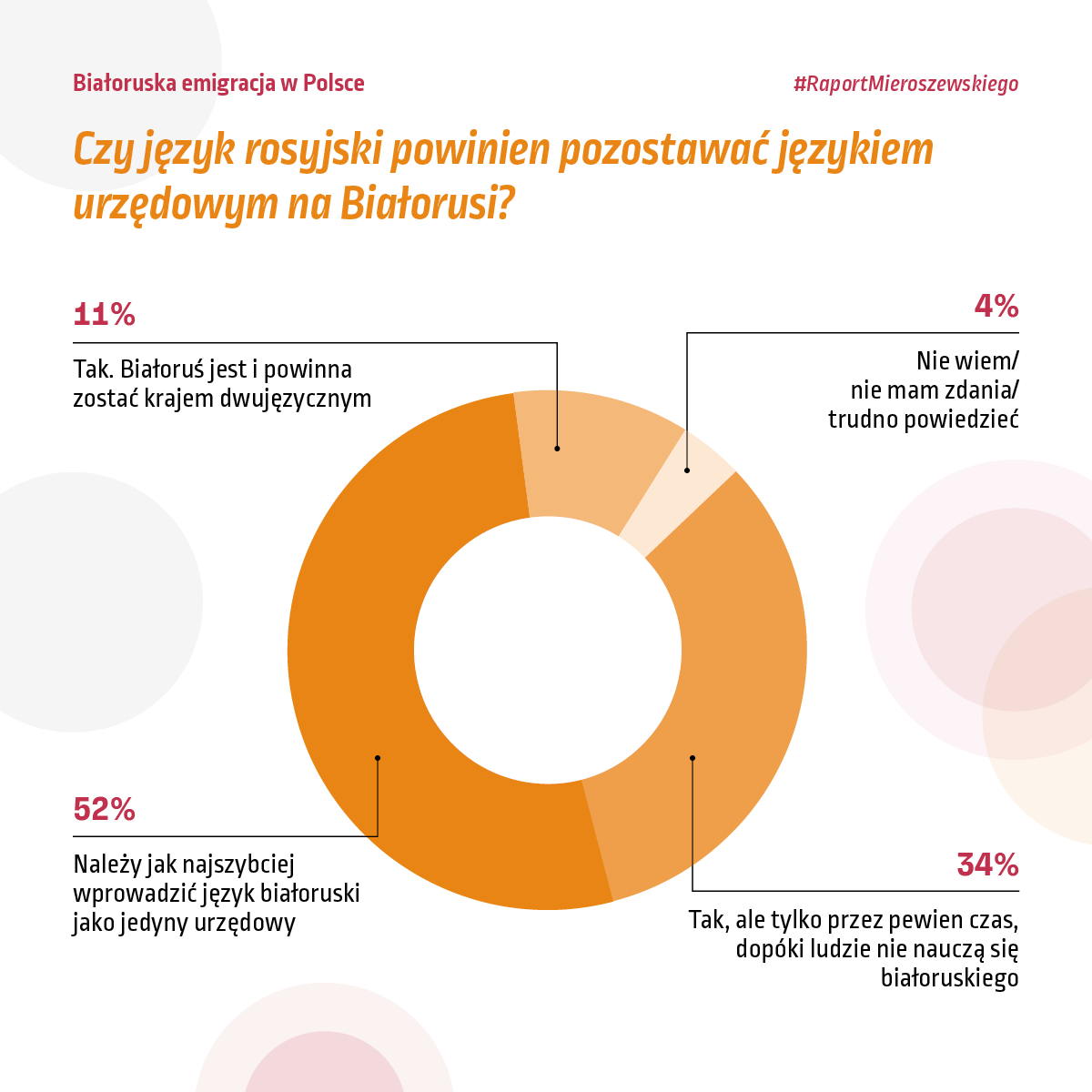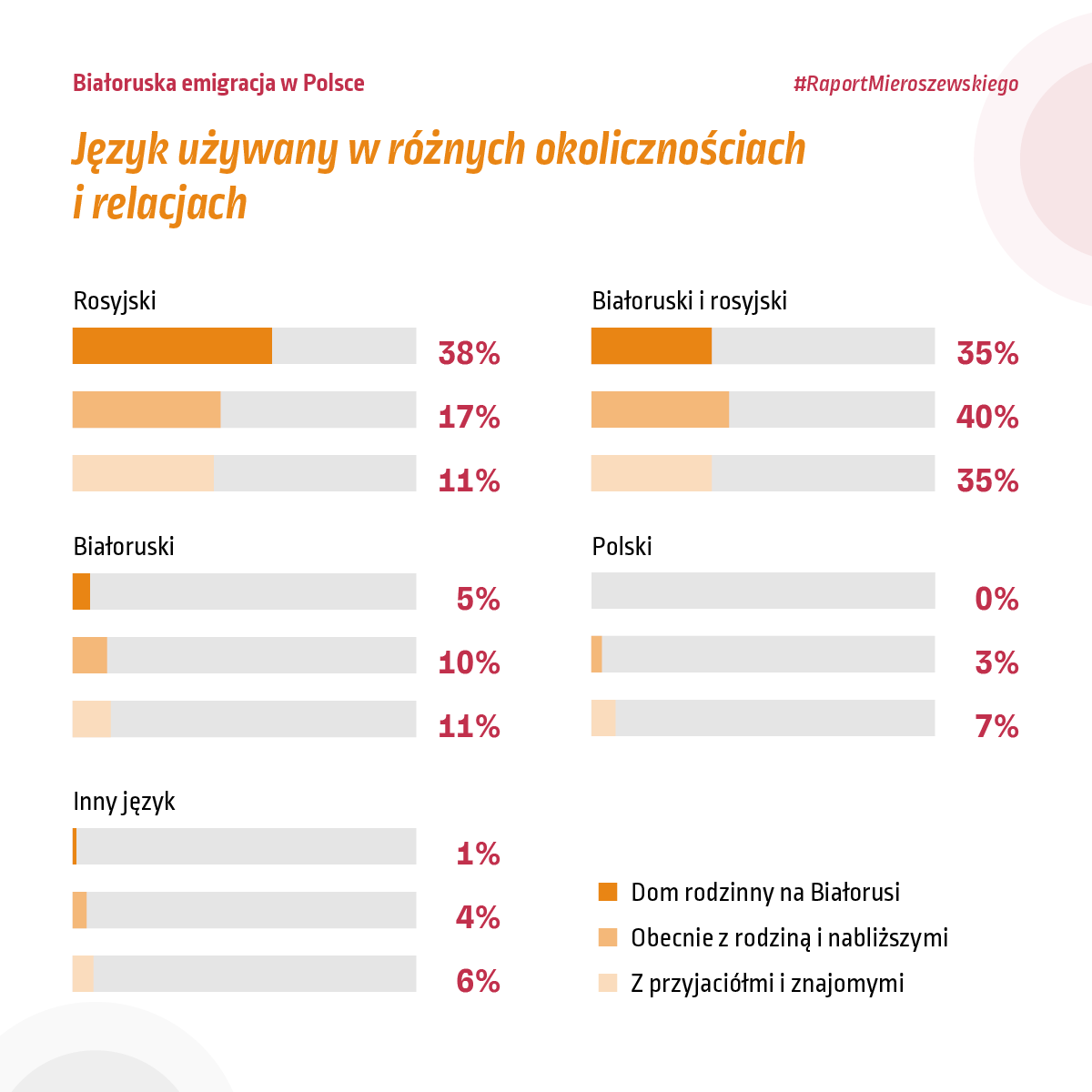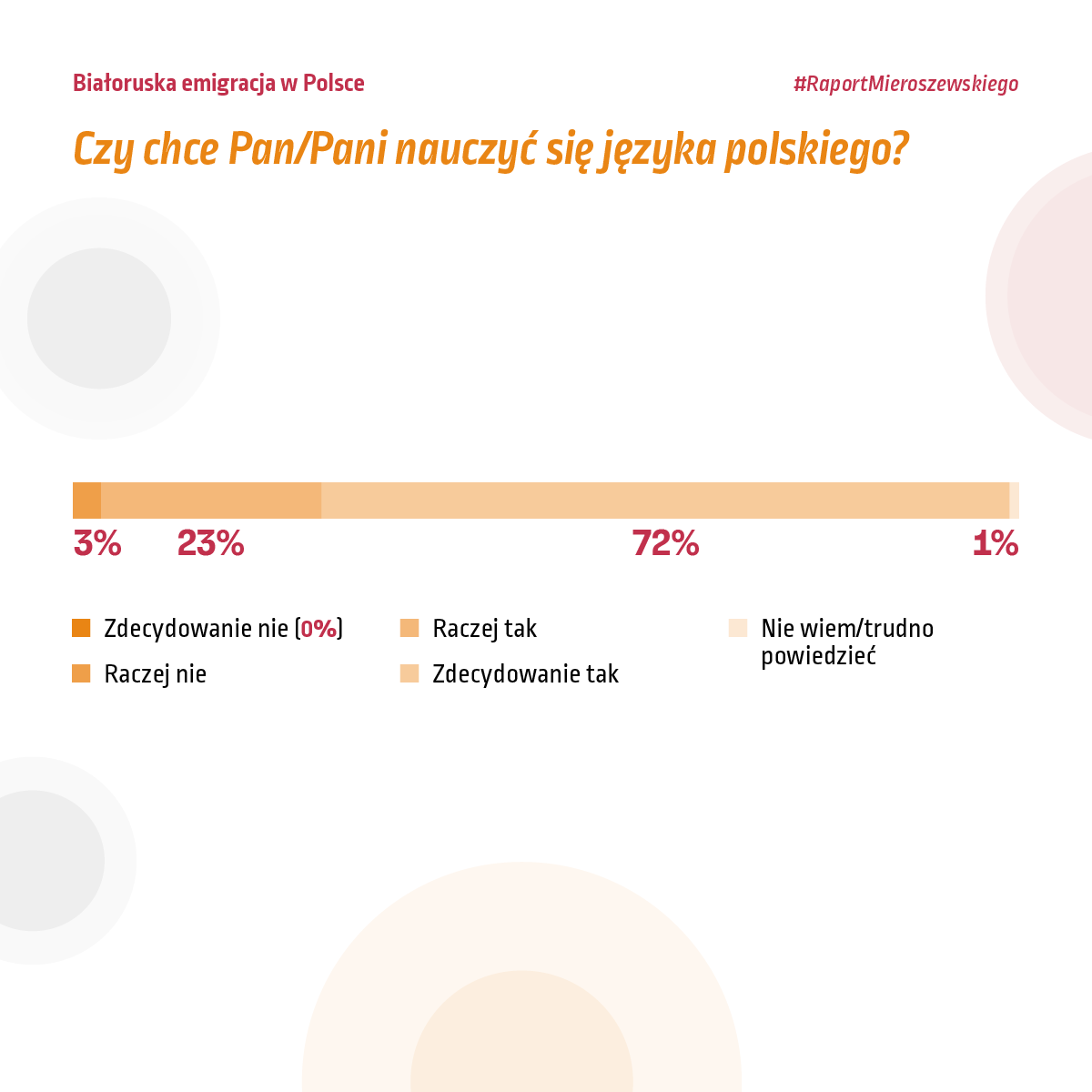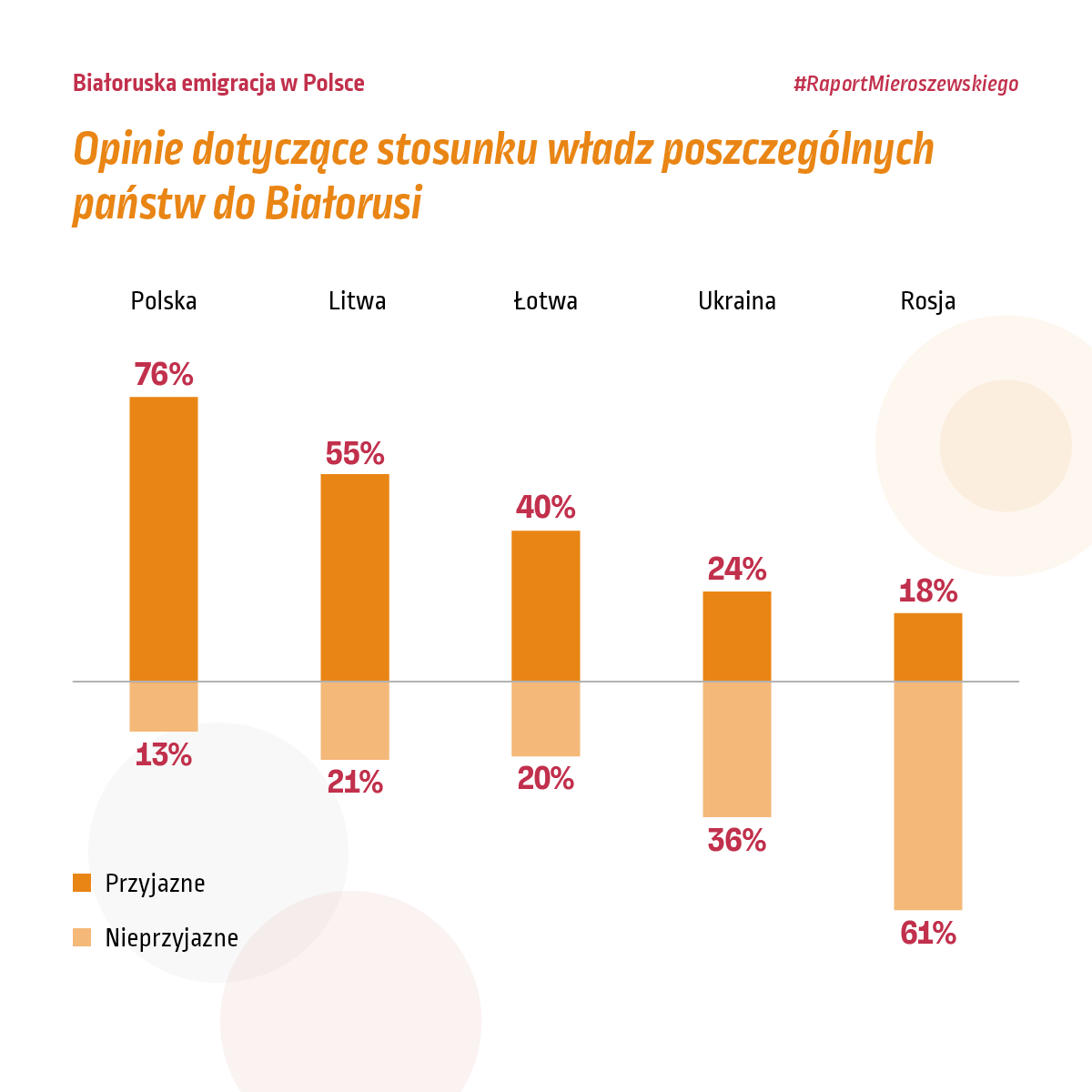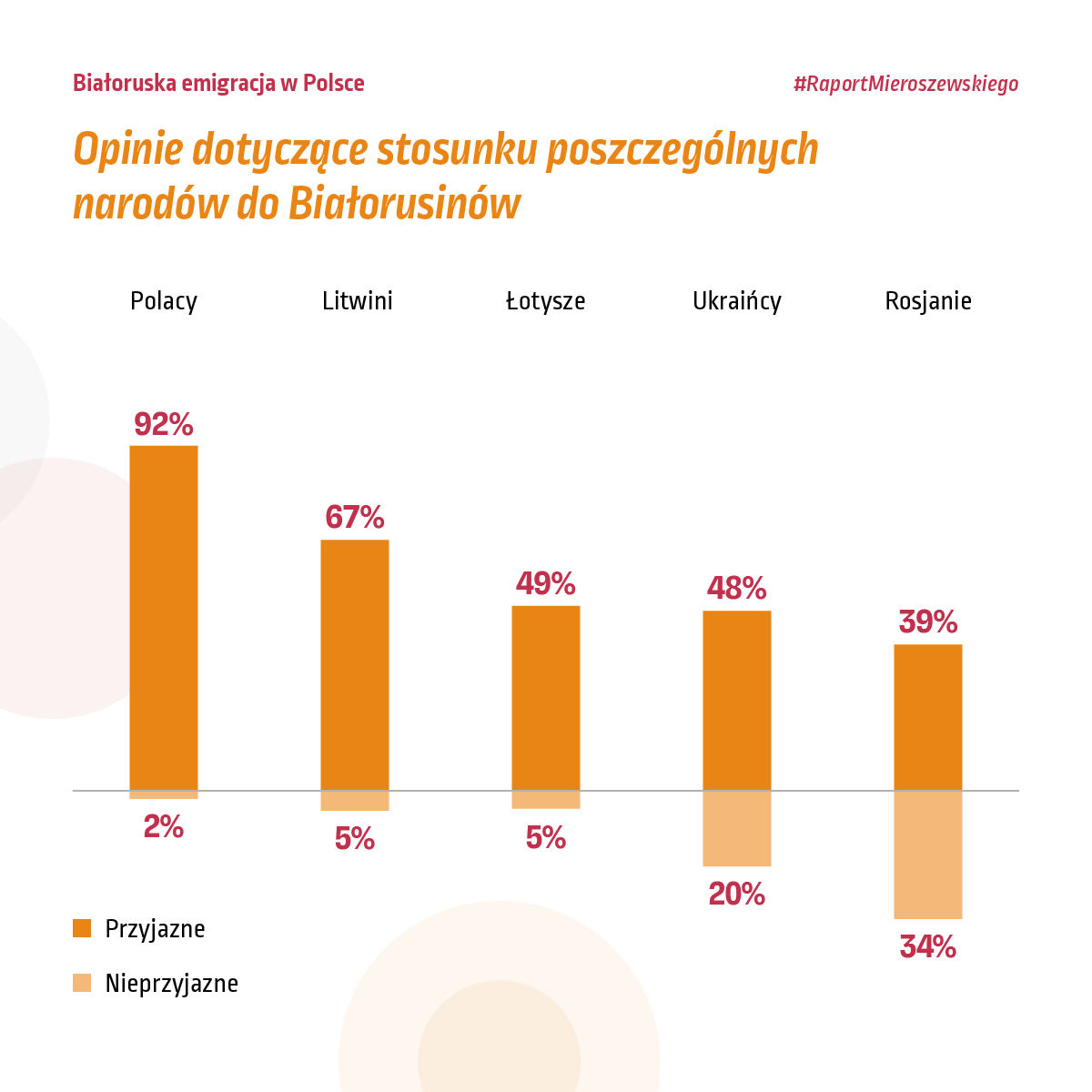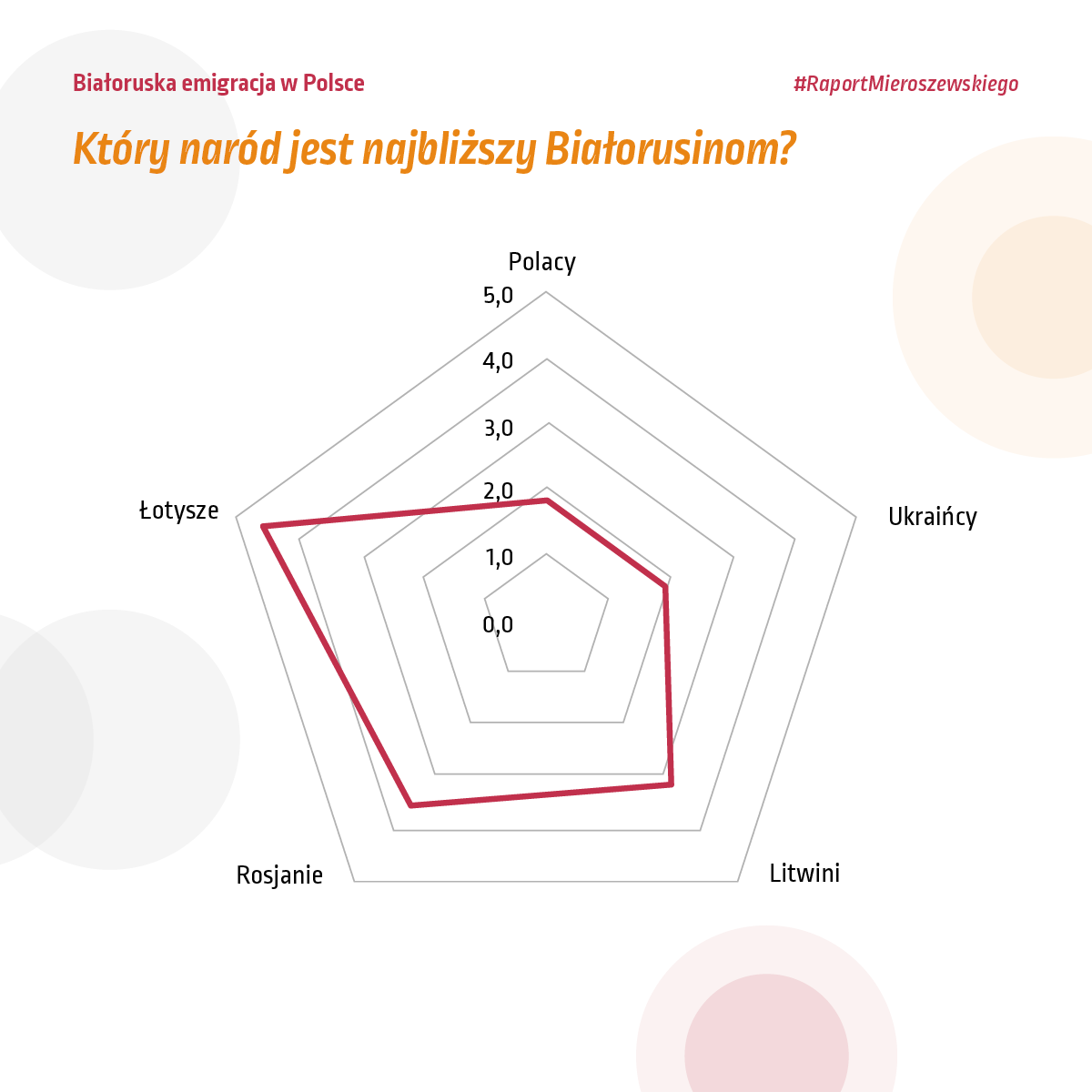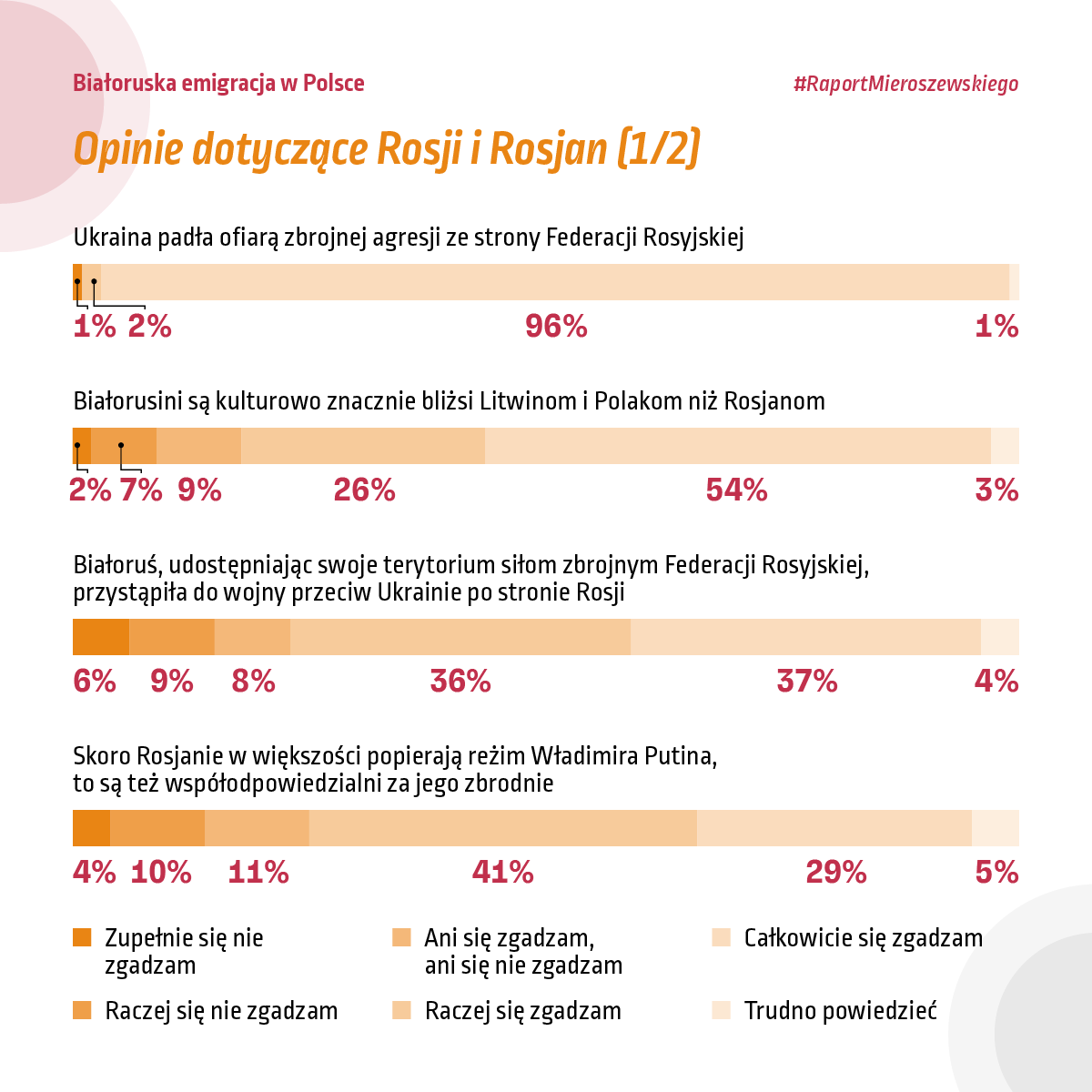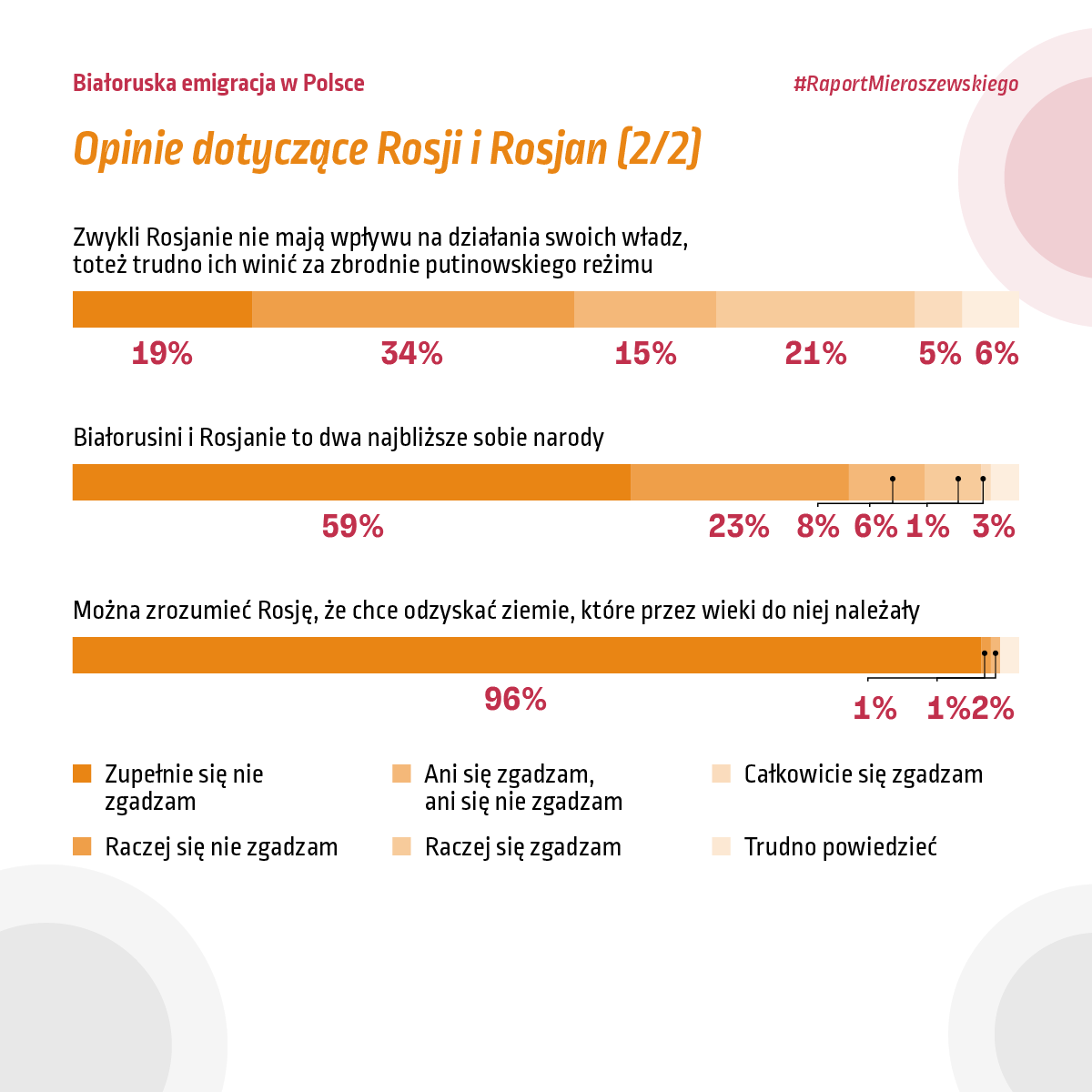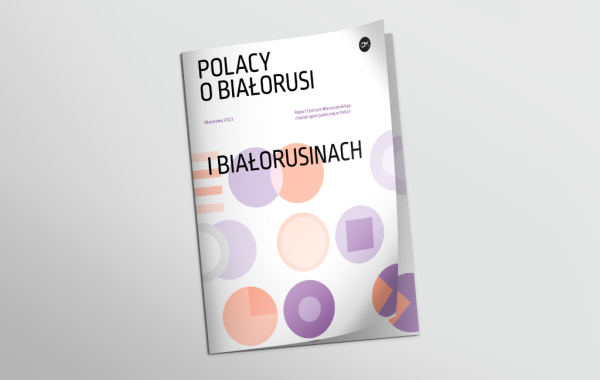Belarusian emigration in Poland
The Mieroszewski Centre has prepared another public opinion research report - Belarusian emigration in Poland - opinions, attitudes, dilemmas. Together with the results of the Polish public opinion poll "Poles on Belarus and Belarusians", this report gives an insight into the current state of public awareness on Polish-Belarusian issues, captured at a dramatic moment for Belarus and an uneasy moment for Poland.
The new Belarusian emigration to Poland is a less publicised and less explored topic compared to Ukrainian themes, which have been strongly present in the Polish news landscape for several months now. This is due to the different scale of the two phenomena (tens of thousands of Belarusians compared to several million Ukrainian citizens) and the fact that the Polish public opinion, quite understandably, has focused primarily on Ukrainians as direct victims of the ongoing war. However, the influx of Belarusians, which has been growing since August 2020, and intensifying with the increasing repressiveness of Alexander Lukashenko’s regime, is an equally important component of the emerging new social landscape in Poland as a result of the events happening east of Poland’s borders.
For the majority of Belarusians currently staying in Poland, the main reason to leave their country was the fear of repression in Belarus (86%). There are also other reasons which the surveyed Belarusians mentioned, either separately or in parallel with the fear of repression. A half of the respondents think that Poland is a country where life is generally better than in Belarus. For this reason, nearly one in five respondents mentioned better career opportunities through a better-paid job or a job which is more in line with their qualifications and interests. Nearly a half of the surveyed Belarusians declare that they do not want to return to Belarus, and 45% of that number plan to stay in Poland permanently while 5% of the respondents intend to leave for another country.
Problems associated with staying in Poland
For the majority of the respondents, dealing with official matters was the biggest challenge related to their stay in Poland. Minor or major problems in this sphere were reported by 70% of the respondents. Establishing social contacts/ making friends with Poles turned out to be another challenge for most migrants from Belarus (64%) and so was finding real property to rent (60%).
The majority of Belarusians living in Poland (73%) declare that they spend most of their out-of-home time with other Belarusians, of which 45% spend it with Belarusians living in Poland while 27% socialise with Belarusians and members of other nations of the former Soviet Union. Those respondents who say they spend most of their out-of-home time with Poles are significantly less numerous, i.e. 20% of those surveyed. The language barrier seems to be the main underlying reason. Since Russian is the commonly spoken language in Belarus, the respondents declared that they spend time mainly with Belarusians and/or other Russian speakers.
Language issues
The majority of the surveyed Belarusians believe that Belarusian should ultimately become the only official language in Belarus. More than a half (52%) claim that this transition should be made as soon as possible, while 34% think it is necessary to wait until people have learnt to speak Belarusian. Only a minority believe that Belarus should remain a bilingual country.
Perceived attitudes of neighbouring countries towards Belarus
Despite Belarus’ involvement in Russia’s aggression against Ukraine, the majority of the respondents believe that Poland maintains a friendly attitude towards Belarus. Moreover, Poland is perceived as the most friendly country towards Belarus among all five neighbours of that country. In contrast, Russia is believed to be the most unfriendly country towards Belarus. This is despite the actual cooperation between the authorities of both countries. It turns out that the respondents have no illusions and realise that there are no positive intentions behind the actual cooperation and officially declared friendship.
When assessing the attitudes of the neighbouring peoples towards Belarusians, friendly attitudes were thought to prevail in each case. The prevalence of friendliness was relatively low in the case of Russians (39% vs. 34%). In the respondents’ view, Poles are by far the most friendly nation towards Belarusians: only 2% of those surveyed expressed the opposite view.
In the case of Ukrainians, the perceived attitude towards Belarusians is not as unambiguous. The largest group of the respondents, i.e. 48%, believe that Ukrainians are friendly towards Belarusians, but as many as 20% hold the opposite view.
On the other hand, the respondents perceive the cultural proximity between the nations differently. In this case, the respondents have hardly any doubts that Ukrainians are very close to them. Ukrainians and Poles received nearly identical values in the ranking of cultural proximity between the nations: in the respondents’ view, these two nations are definitely closest to Belarusians in terms of culture. In turn, Belarusians feel the weakest cultural connection with Latvians and Russians.
The community of Belarusians who came to Poland in recent years turns out to be very coherent and integral in their views on issues related to politics, nation and language, history and culture. This group is not a crosssection of the whole Belarusian society, or ‘miniature Belarus’, but, instead, a community of emigrants with distinct and quite unambiguous views, for whom there is no place in today’s Belarus.
